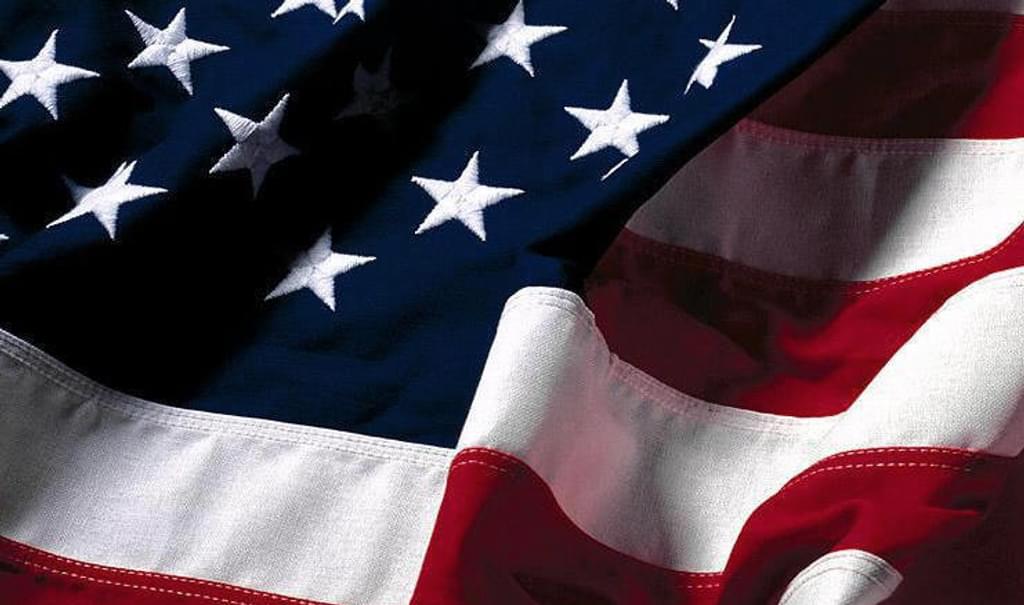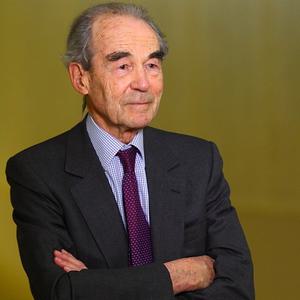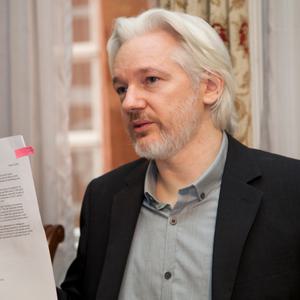
General News Articles
Guantanamo Detainees:
A look at the Guantanamo military commission
By The Associated Press – May 4, 2012
Here is a look at the military commission system that will be used to prosecute five Guantanamo Bay prisoners charged in the Sept. 11 attacks:
WHAT IT IS: A military commission is a form of military tribunal convened to try people accused of unlawful conduct associated with war. They were commonly used for the first time during the 19th century Mexican-American War and have been modified over time by Congress and U.S. Supreme Court precedents. President George W. Bush and Congress authorized a military commission to try prisoners accused of terrorism and war crimes and held as prisoners at the U.S. Navy base in Guantanamo Bay, Cuba. President Barack Obama and Congress convened a new military commission, with several reforms aimed at addressing concerns of human rights groups and others, in October 2009.
HOW IT WORKS: A military commission trial is similar to a court martial in that the jurors are military officers, as is the judge. Many of the principles are the same as in both a U.S. civilian or military court: Defendants are innocent until proven guilty; the prosecution has the burden of proof; guilt must be proved beyond a reasonable doubt. As in a court martial, a conviction requires agreement by 2/3 of the jurors instead of the unanimous agreement required for a jury in civilian court. A military jury must be unanimous to impose a death sentence.
WHO HAS BEEN CONVICTED SO FAR: The Guantanamo commissions under Presidents Bush and Obama have resulted in seven convictions, two at trial and five through plea bargains.
WHY HUMAN RIGHTS GROUPS DON’T LIKE IT: Obama and Congress adopted several reforms in October 2009, including a prohibition on statements obtained by torture or cruel, inhuman or degrading treatment. But critics say the reforms don’t go far enough, that the prosecution can still use statements and evidence from witnesses tainted by harsh treatment. Opponents of the military commissions also say that rules governing secrecy and the use of some forms of hearsay evidence will allow the U.S. to avoid a full accounting of the treatment of prisoners such as Khalid Sheikh Mohammed at secret CIA detention sites.
WHAT COULD HAPPEN: Mohammed and his four co-defendants all face charges that include murder, conspiracy and terrorism and could get the death penalty if convicted. They are scheduled to be arraigned Saturday but are not expected to enter pleas and the trial itself is likely at least a year away.
Summary on Guantanamo, Miami Herald, July 17, 2011:
“6 Guantánamo captives have been tried by military commission since the Pentagon began moving men and boys there in January 2002. None faced death penalty charges.
4 pleaded guilty in exchange for short sentences:
• So-called Australian Taliban David Hicks pleaded guilty in 2007 to providing material support for terror as a Taliban foot soldier. He was repatriated that same year.
• Sudanese-born al Qaeda cook Ibrahim al Qosi pleaded guilty in July 2010 to providing material support terror and conspiracy. He is slated for release in 2012.
• Canadian Omar Khadr pleaded guilty in October to conspiring with al Qaeda, murdering a U.S. soldier at age 15 by throwing a grenade in a firefight, spying and providing material support for terror. He is slated for return to Canada by November to serve out at most 6 more years in jail.
• Sudanese-born paramilitary camp trainer Noor Mohammed pleaded guilty in February to conspiring with al Qaeda in Afghanistan in the ’90s. Under the plea bargain, he could be released in 2014 in exchange for testimony at future trials.
2 were convicted at trials:
• Yemeni Salim Hamdan of Yemen was convicted in August 2008 of providing material support for terror for working as Osama bin Laden’s driver in Afghanistan, but cleared of a conspiracy charge. He was sent home the same year.
• Bin Laden’s media secretary, Ali Hamza al Bahlul of Yemen, was found guilty in November 2008 of providing material support for terror and conspiracy after offering no defense. He is serving life at Guantánamo.”
(Miami Herald, July 17, 2011)
Earlier Proposal for Federal Trials
U.S. Attorney General Eric Holder had announced that five men being held in Guantanamo prison in connection with the September 11, 2001 attack on the World Trade Center will face trial in federal court in New York City: Khalid Shaikh Mohammed, Ali Abd al-Aziz Ali, Walid bin Attash, Mustafa Ahmed al-Hawsawi and Ramzi bin al-Shibh. These defendants could face the federal death penalty. (C. Savage, “U.S. To Try Avowed 9/11 Mastermind Before Civilian Court in New York,” New York Times, November 14, 2009.)
However, in 2011, Holder announced that these detainees would be tried before military commissions in Guantanamo, rather than under the federal death penalty.
Five other detainees held in connection with other acts of terrorism will face trials before military commissions: Abd al-Rahim al-Nashiri, Ahmed Mohammed Ahmed Haza al-Darbi, Ibrahim Ahmed Mahmoud al-Qosi, Oma Ahmed Khadr, and Noor Uthman Muhammed.
See also:
“Defense Lawyers in 9/11 Case Face Huge Hurdles” by Daphne Eviatar, Huffington Post, August 21, 2013
“Empty Chairs” by Daphne Eviatar, The American Lawyer, April 1, 2008 (difficulty in finding qualified counsel and other due process problems in Military Commission capital trials) (subscription required to view)
“Is The Bush Administration Right to Seek the Death Penalty for 9/11 Captives?” by Michael Dorf for FindLaw’s Write on February 13, 2008
“US Plans Death Camp” - This article reveals that the U.S. has possible plans to turn Guantanamo Bay into a death camp, with its own death row and execution chamber. (Courier-Mail, May 26, 2003).
“Rules for Military Tribunals” a chart comparing the some of the rules for military tribunals for terrorism suspects with courts-martial and civilian courts.
Administration May Be Willing to Forgo Death Penalty in Extradition Cases - U.S officials have indicated that, in order to gain custody of suspected terrorists in Europe, they maybe willing to make concessions on both the death penalty and the use of military tribunals. Currently, England, Italy, and Spain hold suspected terrorists, but are among the over 40 nations that have signed the European Convention on Human Rights, which condemns the use of the death penalty and possibly the use of military tribunals. Spain has already said that it will not extradite the eight suspected terrorists in its custody without assurances that the death penalty will not be sought (see below). In the past, the U.S. has given such guarantees as a condition of extradition. (Associated Press, 12/1/01). See also, international death penalty.
“No return to execution - The US death penalty as a barrier to extradition” - This new report by Amnesty International examines the practice of foreign governments which refuse to extradite suspects to the U.S. without first obtaining assurances that the death penalty will not be sought or imposed. (Amnesty International, AMR 51/171/2001)
Federal Legislation Related to the Attack of September 11, 2001 - View Congress’s Web site featuring Bills & Joint Resolutions signed into law, approved resolutions, legislation with floor action, and legislation without floor action.
On November 13th, President Bush signed a military order authorizing the Secretary of Defense to detain and prosecute, by military commissions, non-U.S. citizens who are or were members of al Qaeda and who have engaged in, aided or abetted, or conspired to commit acts of international terrorism. These military commissions would be empowered to render sentences extending to life imprisonment or death upon conviction. Read the “MILITARY ORDER: Detention, Treatment, and Trial of Certain Non-citizens in the War Against Terrorism” (11/13/01)
The Terrorist Bombings Convention Implementation Act of 2001 - Title I of the Act authorizes the imposition of the death penalty for the offenses set forth in Section 102 of the bill. While the proposed legislation was in the House Judiciary Committee, Congressman William D. Delahunt of Massachusetts offered an amendment to delete the language providing for the death penalty. The amendment, however, was not incorporated.
Zacarias Moussaoui Case
Read “Terrorism Trial’s Strategies Revealed,” Washington Post, Nov. 14, 2005, regarding the penalty phase of Moussaoui’s capital trial.
Read the United States’ “Notice of Intent ot Seek a Sentence of Death” for suspected terrorist Zacarias Moussaoui, filed in the U.S. District court for the Eastern District of Virginia in March 2002. Read the 6 count indictment against Moussaoui, filed in in December 2001.
Federal Jury Gives Moussaoui Life in Prison Without Parole - A federal jury voted today that Zacarias Moussaoui should serve a sentence of life in prison without parole despite the government’s assertion that his lies to FBI officials contributed to the terrorist attacks of September 11, 2001. Earlier the jury had found that Moussaoui was responsible for some of the deaths that took place on September 11, and that he was eligible for the death penalty. After weeks of testimony during the sentencing phase of the trial, the jury took 7 days to recommend a sentence of life without parole. In their verdict, the jury unanimously agreed that Moussaoui “knowingly created a grave risk of death” for more than the intended victims of September 11th, and that he committed his acts with “substantial planning,” two of the aggravating factors listed in the death penalty statute.
Moussaoui’s defense team, with whom he did not cooperate, argued that
he is a delusional schizophrenic. They maintained that Moussaoui took
the witness stand to confess his role in the September 11 attacks
because he wanted to achieve martyrdom through execution. During the
sentencing phase, jurors heard testimony from victims’ family members,
some of whom supported and some who opposed the death penalty for
Moussaoui, from mental health experts, and others who were directly
impacted by the events of 9/11.
Following the verdict, Terry
Rockefeller, whose sister was killed in the World Trade Center attacks,
noted, “Had the jury sentenced Zacarias Moussaoui to death we would have
turned a man with long-term mental health problems, whose direct
responsibility for the 9/11 attacks are tenuous, into a martyr. Evidence
introduced during the trial cast significant doubt on Moussaoui’s
importance within al Qaeda… . [M]ost fundamentally, I oppose the
death penalty because I do not want to be the citizen of a state that
kills. I do not want to be a party to more violence and killing.”
The
attacks took the lives of nearly 3,000 people and were the deadliest
terrorist attack in U.S. history. The Alexandria courthouse where the
trial was held is just miles away from the Pentagon, where one of the
9/11 attacks occured. Federal judge Leonie Brinkema is expected to
impose the life sentence on Thursday, May 4. (CNN & Associated
Press, May 3, 2006, and Statement issued by Terry Rockefeller, May 3,
2006). Read the Jury’s Verdict Form. See Federal Death Penalty and Arbitrariness.
- NEW VOICES: Senior Counsel to 9/11 Commission Questions Death Penalty for Moussaoui - In a recent New York Times op-ed, John Farmer, senior counsel to the 9/11 commission and a former New Jersery attorney general, states that seeking the death penalty for Zacarias Moussaoui detracts from U.S. efforts to seek justice against senior Al Qaeda officials who plotted and carried out the 9/11 attacks. Farmer claims Moussauoi, who was in jail as terrorists plotted and carried out the events of 9/11, was not the “20th hijacker” and is a “poor stand in” for more senior level Al Qaeda leaders who are also in U.S. custody:
Through a perverse confluence, Mr. Moussaoui’s interest in becoming
something in death that he never was in life — important — has combined
with the government’s interest in executing someone for the 9/11
attacks. The likely result is an odd form of assisted suicide, in which
Mr. Moussaoui will claim martyrdom as he is executed, and the United
States will claim that the rule of law has been vindicated by bringing a
terrorist to justice for 9/11.
Neither claim will be justified… .
Zacarias
Moussaoui is evil, and there is no doubt that he arrived here
determined to kill Americans, but he was not a leader of Al Qaeda. He
was not even, as initially reported, the “20th hijacker.” He was not in
contact with the 9/11 hijackers in the United States. His apprehension
in late August 2001 did nothing to disrupt the plot’s timing. He sat in
jail while the attacks unfolded.
Based on his conduct, he should
sit in jail some more. Six floors underground, with one hour outside his
cell per week. For, oh, 50 more years or so. He should die there,
frustrated and forgotten, embittered and anonymous. This could have been
achieved without the catharsis of the penalty hearing. (New York Times,
April 11, 2006). See Federal Death Penalty.

NEW VOICES: Mother of September 11 Victim Opposes Death Penalty for Moussaoui - Alice Hoagland’s son, Mark Bingham (pictured), was killed on September 11 as he joined with fellow United Airlines passengers to ground a plane that may have been headed toward the White House. Hoagland is urging a life sentence for Zacarias Moussaoui, who faces the death penalty for his role in the terrorist events of that day. In an interview with The Advocate, Hoagland noted that sparing Moussaoui’s life would honor “a reverence for all life” and that it would prevent some from viewing him as a martyr. Hoagland, a former flight attendant who is now active in transportation safety issues, stated:
We Americans have the opportunity to keep him from becoming glorified as a martyr… . Al Qaida, other fundamentalist Muslim groups - even mainstream Muslims - would be tempted to view Moussaoui’s death as a martyrdom. This man does not deserve that honor.
…
We Americans have the opportunity to demonstrate our compassion toward a man who has shown no compassion for America. We are a nation of laws, of justice, and of mercy. By sparing his life, we can demonstrate our humanity by acknowledging the humanity of a human being who badly needs compassion. By sparing his life, we will have overcome the sort of hatred that he displays toward us.
…
It is difficult to imagine a more despicable human than Zacarias Moussaoui has shown himself to be. But he, like all of us, is a bundle of traits and attitudes. His lower self has dictated his present low behavior. I hope we as a nation can demonstrate our higher impulses by sparing his life - while keeping him safely behind bars for the remainder of his life. If we can do that, we will honor our own high standard of reverence for all life, and we will model a better standard of behavior for Zacarias Moussaoui to take to heart. (Advocate.com, April 8, 2006. Hoagland’s comments will appear in the May 9, 2006, edition of The Advocate (Calif.)).
International News
- Germany Hesitates to Supply Evidence that Would Aid in Prosecution of Moussaoui - German authorities are reluctant to turn over evidence in their possession that could demonstrate a relationship between suspected terrorist Zacarious Moussaoui and the perpetrators of the September 11th attacks on the U.S. Moussaoui is charged with 6 counts of conspiracy in connection to the attacks and faces the death penalty if convicted. German officials, who do not want to contribute to the case as long as it could potentially result in the execution of Moussaoui, are currently negotiating with American officials in an attempt to find a satisfactory compromise. (Washington Post, 6/11/02)
- British Authorities Oppose Capital Punishment for Detainees
- Chris Patten, the European Commissioner for External Affairs, said
that it was inconceivable that the three British citizens being held at
the U.S. naval base at Guantanamo Bay could be subject to capital
punishment after being tried in a military tribunal. “I just think that
would be a way of losing international support and losing the moral high
ground that the international coalition has,” said Patten.
Foreign Office Minister Ben Bradshaw added: “The British Government regularly, in cases where the death penalty may be imposed on British citizens, makes our views on the death penalty very plain to the American authorities. We are opposed to the death penalty.” (BBC News, 1/22/02)
- “Ashcroft says death penalty extradition issue to be handled case-by-case” (Associated Press, 12/12/01) - Reports that U.S. Attorney General John Ashcroft feels it is best to consider extradition cases individually.
- Spain Will Refuse to Extradite Terrorists If U.S. Seeks Death Penalty - A Spanish Foreign Ministry spokesman said that Spain will not extradite terrorist suspects to the U.S. without assurances that they will not be subject to capital punishment. The spokesman cited European Union agreements that prevent members from extraditing suspects to countries where judicial norms are seen as falling below those in the Union. (Associated Press, 11/23/01)
- “U.S. Death Penalty Could Prove Hurdle to Extradition of Terror Suspects from Britain” (Associated Press, 10/8/01) Reports that European human rights legislation may hinder Britain from extraditing suspected terrorists to the U.S, if they would be subject to the death penalty.
- U.S. Differences with Europe on Death Penalty Could Impede Progress on Terrorism - The U.S. may have to agree that it will not pursue the death penalty against suspected terrorists in order to have them extradited from Europe. In the next few weeks, European Union leaders will meet with U.S. officials to decide on extradition procedures for those suspected of the U.S. terrorist attacks on September 11. In the past, European countries, which oppose capital punishment, have refused to extradite criminals to the U.S. unless U.S. officials stipulate that the death penalty will not be sought. Several European Union ministers have asked for a new comprehensive agreement that would address the issue of capital punishment. (USA Today, 10/3/01) See also, International Death Penalty.
Principal Treaties
International Covenant on Civil and Political Rights
The U.S. ratified the treaty.
Convention Against Torture and Other Cruel, Inhuman or Degrading Treatment or Punishment
The U.S. ratified the treaty in 1994.
International Convention on the Rights of the Child
The U.S. has signed but not ratified this document.
Vienna Convention on Consular Relations
The U.S. ratified the Vienna Convention in 1969.
Law Review Articles
Ostrom, Brian J., et at. “The Prosecution and Punishment of Intentional Terrorists in Federal Courts: 1980-1998” 3 Criminology and Public Policy 311 (2002).
Donohue, Laura K.,”Bias, National Security and Military Tribunals” (reaction essay) 3 Criminology and Public Policy 339 (2002).
Turk, Austin T., “Confronting Enemies Foreign and Domestic: An American Dilemma?” (reaction essay) 3 Criminology and Public Policy 345 (2002).
Symposium, “Capital Punishment in the Age of Terrorism” 41 The Catholic Lawyer 187 (2001). The text from a symposium sponsored by the Association of the Bar of the City of New York features leading death penalty experts closely examining how governments respond to national crimes, such as the terrorist attacks on the World Trade Center and the Pentagon, that trigger factors that are not present in ordinary first-degree murder cases.
International
Feb 12, 2024




